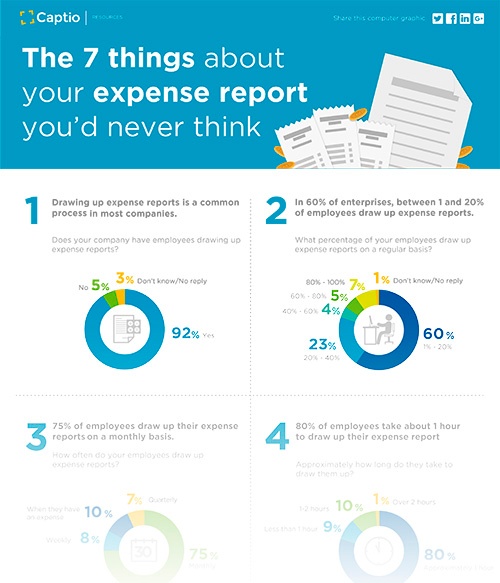In many companies, drafting, monitoring and approving expense reports is just another administrative task that is of no added value or interest beyond its basic function. Lots of companies even take the step of automating and digitizing this process in order to improve it, but go no further. However, the fact is that expense reports can be a strategic improvement tools for companies if they are managed effectively.
Often, company directors do not think of expense reports as a source of information. Or, at least, they are unaware of the relevance that they may have. In fact, up-to-date and quality information enables strategic decisions to be made on a more reasoned and solid foundation, thereby ensuring their success.
 Therefore, in order to make the expense and mileage claim reports into a tool of this kind, first of all, it is necessary to specify the data and information to be gathered and analysed. The type of expenses and payment methods tend to be the most common aspects for analysis, but there are lots more, such as the associated cost centre, customer, project or supplier, etc. So all of the company’s corporate travellers have to fill in the same type of expense report, which requests the information required.
Therefore, in order to make the expense and mileage claim reports into a tool of this kind, first of all, it is necessary to specify the data and information to be gathered and analysed. The type of expenses and payment methods tend to be the most common aspects for analysis, but there are lots more, such as the associated cost centre, customer, project or supplier, etc. So all of the company’s corporate travellers have to fill in the same type of expense report, which requests the information required.
To be able to use this information effectively, it has to be digitized, gathered together in a single document or database, to enable its joint analysis. If the data is fragmented, the task will be much harder.
As a result of this process, the finance department or executive team can use all of this data to generate extremely interesting metrics and parameters that enable them to identify points for improvement in processes and opportunities for saving resources: ROI on expenditure, real indirect costs associated to a customer or project, evolution of expenses by department, cost centre or even employee, regular suppliers with whom to negotiate favourable conditions, etc.
It should be highlighted that, when the expense report management process is digitized from start to finish, this analysis can be conducted in detail systematically and efficiently, without wasting any time processing the data beforehand.




